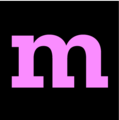Teaching Open Source (and Aerodynamics) with Aerogami
#mozsprint 2017 Interview Series
Kshitiz (@kshitizkhanal7) is exploring open science at Open Knowledge Nepal and researching open data for sustainable development. Combining his passions for open science, open data, and open education, Kshitiz joined our most recent cohort of Mozilla Open Leaders with his project Aerogami.
I interviewed Kshitiz to learn more about Aerogami and how you can help June 1–2 at #mozsprint.
What is Aerogami?
Aerogami is open courseware that teaches how things fly by making paper planes and with other minimal setup using household objects. A learner can experience what’s happening for themselves instead of believing the teacher or textbook. It is also an open educational practice project that seeks to establish a model of interaction / maker based learning of complex concepts, starting with basic aerodynamics.
Why did you start Aerogami?
I have a background in engineering and I have taught undergraduate engineering students. I realized while teaching that explaining engineering concepts that I think I know well is very difficult, and there’s too much new information and complex concepts that a student is supposed to learn in an hour of class. I think this is the case in all domains. I wanted to do something to try to change this and make learning more interactive, intuitive and fun. The idea developed little by little. Aerodynamics is a fascinating subject for many, and everybody has had the joy of flying paper planes. That is why I decided to start with how things fly.
In Aerogami, we are designing workshops where students learn about a concept, then build a setup with the most commonly available objects like paper, tape, and then see the proof of concept then and there. To explore the what-ifs, some extra activities like adding weights, changing shapes are suggested. We want to encourage making, playing, and exploration as a way to learn.
What problems have you run into while working on this project?
The major problem was the structure of the course. Having little experience on curriculum design made the process slow, but with time, research, and consultation, there has been progress.
Finding and creating fitting activities were also challenging, but also the most rewarding once an activity was decided.
Finding places to try the curriculum was hard in the beginning, but some organizations have agreed to try it once the curriculum is finished. I tried parts of it with my friends and discovered things I needed to change. Trying and rebuilding the curriculum helps continuous improvement.
There’s still a long way to go, and we plan to add animations, games, and web applications for better interaction later. Figuring out the details and finding contributors with specialized skillsets is going to be hard.
What kind of skills do I need to help you?
If you want to learn how things fly, you can try one of the workshops alone or with friends. Then, share your experience and provide feedback for improvement.
If you are a teacher, or you run a makerspace, you can run the curriculum with your students and share your and your students’ experiences and provide feedback.
If you are a curriculum designer or educator, you can add to the current content, create new content, or provide feedback for improvement.
If you have software / game development skill you can help me design web applications and games. We have not completely figured out what kind of web application / game would complement the curriculum, so discussion is welcome!
If you have animation skills, you can help create animations to supplement the curriculum, especially the parts for which we cannot design activities.
How can others join your project at #mozsprint 2017?
You can join remotely or at the #mozsprint venue in Kathmandu. The GitHub Repo will be ready and unambiguous for all potential contributors soon.
You can start contributing right away, no matter your background. You can review the structure and content of the curriculum and share your first impression and suggestions for improvement. You can also try some of the workshops on your own, or with your students or friends and see if it helps you learn about how things fly.
If you have some special set of skills like designing, programming, animation, you can help us make the course richer and better.
What meme or gif best represents your project?
Join us wherever you are June 1–2 at the Mozilla Global Sprint to work on Aerogami and many other projects! Join a diverse network of scientists, educators, artists, engineers and others in person and online to hack and build projects for a health Internet. Get your tickets now!
